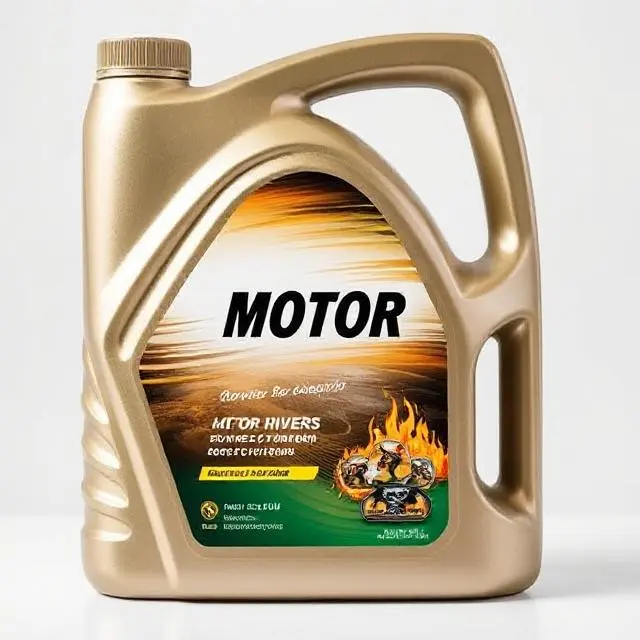Why Choosing the Right Synthetic Oil Matters
If you’re like me, you probably think of your car’s engine as the heart of your vehicle. And just like a human heart, it needs the right fuel to keep pumping smoothly. That’s where Fuel Synthetic Motor Oil comes into play. For years, people have been making the switch from conventional to synthetic oils, thanks to their higher performance, better protection, and longer lifespan. But with so many options on the market, it can be tough to figure out which one is best for your ride.
In this blog post, we’re diving into the best synthetic oils on the market today, comparing them and helping you understand why the best fuel synthetic motor oil is so important for your car’s longevity. From their benefits to how long they last, I’ll cover everything you need to know to make an informed decision. So, let’s jump in!
Best Review for the Best 3 Fuel Synthetic Motor Oils
1. Pennzoil Ultra Platinum Full Synthetic 5W-20 Motor Oil: What Makes It Stand Out?
Choosing the right synthetic motor oil is crucial for engine performance and longevity. Pennzoil Ultra Platinum Full Synthetic 5W-20 is a top contender in the market, known for its advanced technology and superior protection. This review explores what makes it stand out, alongside other popular oils like Mobil 1 and Castrol EDGE.
- Versatility: Performs well in both low temperatures and extreme heat.
- PurePlus Technology: Made from natural gas, providing cleaner and more refined oil.
- Wear Protection: Offers better protection against engine wear than many competitors.
- Fuel Economy: Improves efficiency, adding an extra 550 miles per year.
- Cleaner Engines: Keeps pistons cleaner than required by industry standards.
2. Valvoline Advanced Full Synthetic SAE 5W-30
Valvoline Advanced Full Synthetic SAE 5W-30 is engineered for superior protection against engine wear, heat, friction, and deposits. It provides 40% better wear protection and 25% better deposit protection than the industry standard, ensuring your engine runs cleaner and longer. It also offers exceptional performance in both high and low temperatures.
Key Features of Valvoline Advanced Full Synthetic SAE 5W-30:
- Wear Protection: Protects your engine against wear, offering 40% better wear protection than industry standards.
- Deposit Protection: Helps prevent sludge and deposit buildup with superior detergents.
- Temperature Resistance: Works in both extreme heat and cold.
- API and ILSAC Certified: Meets or exceeds various industry standards.
3. Mobil 1 Advanced Fuel Economy 0W-16
Mobil 1 Advanced Fuel Economy 0W-16 is specifically designed to improve fuel efficiency by reducing friction. It offers outstanding engine protection, cleans your engine, and helps prevent harmful deposits and sludge buildup. This oil can last up to 10,000 miles between changes and meets the latest ILSAC GF-6 standards for modern engine protection.
Key Features of Mobil 1 Advanced Fuel Economy 0W-16:
- Fuel Economy: Designed to improve fuel efficiency.
- Triple Action Formula: Provides excellent performance, protection, and cleanliness.
- Longer Oil Change Intervals: Lasts up to 10,000 miles between oil changes.
- Oxidation Control: Prevents oil breakdown and maintains viscosity.
- Engine Cleanliness: Helps prevent sludge buildup and deposits.
Why You Should Consider Synthetic Motor Oil
If you’ve been on the fence about switching to synthetic oil, I get it. Maybe you’ve always used conventional motor oil, or perhaps you’ve heard mixed opinions about synthetics. Let me break it down for you: synthetic oil is engineered to perform better and last longer than conventional oils. It’s specially designed to provide superior protection to your engine, helping reduce wear and tear, improve fuel efficiency, and keep your engine running clean and smooth.
The advantages of synthetic oil are clear. Not only does it hold up under extreme temperatures, but it also prevents sludge buildup better than regular oil. For anyone who values performance and wants their car to run for years without issues, synthetic oil is the way to go.
How Long Does Fuel Synthetic Oil Last?
When it comes to synthetic oils, one of the biggest selling points is their longevity. Typically, synthetic oils last longer than conventional oils. In general, a full synthetic oil change can last anywhere between 7,500 to 10,000 miles, depending on your car’s make and model. Some high-quality synthetics can even last up to 15,000 miles.
Of course, your driving habits, climate, and the type of engine oil you use all affect the oil’s lifespan. But in comparison to conventional oils, which typically need to be changed every 3,000 miles, synthetic oil can offer a longer interval, saving you both time and money in the long run.
What Is the Mileage for Fully Synthetic Engine Oil?
The mileage for fully synthetic engine oil is generally much higher than conventional oil, which is why so many car owners opt for it. As I mentioned, you can typically go 7,500 to 10,000 miles between oil changes with fully synthetic oil. However, some brands claim that their synthetic oils can go up to 15,000 miles, which is perfect for those who want to get the most out of their oil before needing a change.
While it’s great that synthetic oil lasts longer, don’t forget to keep an eye on your car’s oil level and color. If it’s time for a change, don’t push it past the recommended mileage!
Does Full Synthetic Oil Improve Gas Mileage?
Yes, full synthetic oil can improve gas mileage. By reducing friction within the engine, synthetic oil helps it run more efficiently, meaning your engine doesn’t have to work as hard to keep moving. This can lead to better fuel economy and reduced emissions. The difference in mileage may not be huge, but over time, those extra miles per gallon can add up—especially for drivers who are frequently on the road.
What’s the Difference Between Mobil Full Synthetic and Mobil 1 Full Synthetic?
It’s easy to confuse Mobil Full Synthetic with Mobil 1 Full Synthetic because both are top-tier products from Mobil, but they are not exactly the same. Mobil 1 Full Synthetic is a premium product designed for high-performance vehicles and demanding driving conditions. It’s built to handle extreme temperatures and provide exceptional protection against wear and tear.
On the other hand, Mobil Full Synthetic is more of an all-around oil suitable for most vehicles. While it still offers great performance, it doesn’t have the same high-end additives as Mobil 1. So, if you’re looking for an oil that’s going to give you the highest level of protection, especially in extreme conditions, Mobil 1 is your best bet.
How Often Should I Change My Synthetic Oil (KM)?
Changing your Fuel Synthetic Motor Oil depends on how much you drive and the conditions under which you drive. Typically, synthetic oil should be changed every 7,500 to 10,000 miles (or 12,000 to 16,000 km). However, if you’re someone who frequently drives in extreme conditions—like hot temperatures, heavy traffic, or towing a trailer—you may need to change your oil more frequently. Always check your car’s owner’s manual for the most accurate recommendations for your specific vehicle.
What Is the Disadvantage of Synthetic Oil?
While synthetic oil has a ton of benefits, there are a few downsides to consider. The main disadvantage is the cost. Synthetic oils are more expensive than conventional oils, and depending on the brand, the price can be significantly higher.
Another downside is that synthetic oil can sometimes cause leaks in older engines. This is because it’s thinner and can seep through gaskets and seals that have worn down over time. So, if you’re driving an older car, it’s important to make sure that the seals and gaskets are in good shape before switching to synthetic oil.
Is It Okay to Go 10,000 Miles With Synthetic Oil?
Yes, it’s generally okay to go 10,000 miles with synthetic oil, but it depends on the brand and the specific driving conditions. Some synthetic oils are formulated to last up to 15,000 miles, while others recommend a 10,000-mile interval. If you’re driving in normal conditions, you can typically go the full distance. However, if you’re driving in harsher conditions (extreme cold, stop-and-go traffic, or towing), you may want to change it sooner to ensure maximum engine protection.
How Often Should I Change Spark Plugs?
Spark plugs typically need to be replaced every 30,000 to 50,000 miles, depending on your vehicle. Some newer vehicles have long-life spark plugs that can last up to 100,000 miles. Keeping your spark plugs in good condition is essential for maintaining optimal engine performance and fuel efficiency.
Do I Really Need to Change Synthetic Oil Every 6 Months?
If you’re using synthetic oil, you don’t necessarily need to change it every six months. In fact, most modern synthetic oils can go longer than that, often between 7,500 to 10,000 miles. However, it’s still important to check the oil periodically and keep an eye on the oil level and color, especially if you’re using your car in extreme driving conditions. When in doubt, consult your car’s owner manual for specific recommendations.
Conclusion: The Best Fuel Synthetic Motor Oils for Your Car
In the end, choosing the right Fuel Synthetic Motor Oil comes down to your car’s needs and your driving habits. The three oils I’ve discussed—Mobil 1, Castrol EDGE, and Royal Purple—are all excellent choices for anyone looking to get the most out of their engine. Whether you’re after high performance, fuel efficiency, or extended protection, there’s a synthetic oil on the market that’s right for you.
If you’re still unsure about which one to choose, don’t hesitate to check with your mechanic or refer to your car’s manual. I hope this review helps guide you toward making an informed decision and keeping your engine running smoothly for years to come.
I’d love to hear your thoughts on this—what’s your go-to synthetic motor oil, and have you noticed any differences in performance or fuel economy? Let me know in the comments below!
Read also : Wiper Blades : Best Review of 3 for 2025








